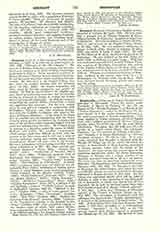

Sergeant, JOHN, b. at Barrow-upon-Humber, Lincolnshire, in 1623; d. in 1710, not, as Dodd asserts, in 1707 (MS. “Obituary of the Old Chapter“). He was son of William Sergeant, a yeoman, and was educated as an Anglican at St. Johns College, Cambridge, graduating in 1642-3. Being appointed secretary to Bishop Morton of Durham, he was employed in patristic and historical researches which resulted in his conversion. He then went to the English College, Lisbon, where he studied theology and was ordained priest (February 24, 1650). He taught humanities till 1652, when he became procurator and prefect of studies. In 1653 he was recalled to the English mission, where he made many converts; but the year following he returned to Lisbon to resume his former offices and to teach philosophy. In 1655 the chapter, recognizing his unusual ability, elected him a canon and appointed him secretary. For the next twenty years he was actively engaged in controversy with Stillingfleet, Tillotson, and other Anglican divines, also with the Catholic theologians who opposed the views of Thomas Blacklow. At the time of the Oates Plot he entered into communication with the Privy Council, which greatly scandalized the Catholics, but some of the incidents which happened suggest that his mind was unbalanced at the time. He avoided arrest by passing as a physician under the names of Dodd, Holland, and Smith. His peculiar temperament, which always made him difficult to work with, increased in his later years, and he fell into a state of nervous irritation, saying and writing things which caused great offense and pain, even to his friends. He was a voluminous writer, leaving over fifty works, either published or in MS. His chief writings are: “Schism Disarm’d” (Paris, 1655); “Schism Dispatcht” (1657); “Vindication of Benedict XII.’s Bull” (Paris, 1659); “Reflections upon the Oath of Supremacy and Allegiance” (1661); “Statera Appensa” (London, 1661); “Tradidi Vobis” (London, 1662); “Sure-Footing in Christianity” (London, 1665), a system of controversy, for which he was attacked by Peter Talbot, Archbishop of Dublin, and in defense of which Sergeant wrote several pamphlets; “Solid Grounds of the Roman Catholic Faith” (1666); “Faith Vindicated” (Louvain, 1667); “Reason against Raillery” (1672); “Error Non-plust” (1673); “Methodus Compendiosa” (Paris, 1674); “Clypeus Septemplex” (Paris, 1677), a defense of his own teaching; a series of “Catholic Letters” in reply to Stillingfleet (London, 1687-8); “Method to Science” (London, 1696); a series of works against Cartesian philosophy, “Ideas Cartesianae” (London, 1698); “Non Ultra” (London, 1698); “Raillery defeated by Calm Reason” (London, 1699); “Abstract of the Transactions relating to the English Secular Clergy” (London, 1706); other pamphlets relating to the chapter, some of which, with replies thereto, were suppressed by the orders of the chapter. There is an original painting at the English College, Lisbon.
EDWIN BURTON

